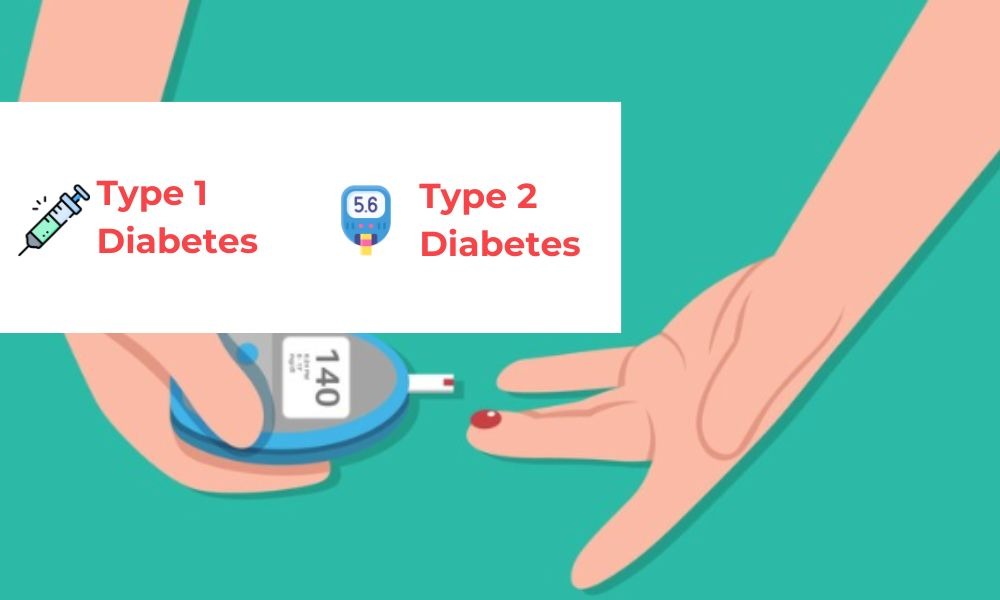While both Type 1 and Type 2 diabetes affect how the body regulates blood sugar (glucose), they differ significantly in their causes, onset, treatment, and management. Knowing the distinctions is essential for proper diagnosis, care, and long-term health outcomes.
Causes And Origins
* Type 1 diabetes is an autoimmune condition where the body’s immune system attacks insulin-producing beta cells in the pancreas
* Type 2 diabetes develops when the body becomes resistant to insulin or the pancreas fails to produce enough insulin
* Type 1 is typically inherited or triggered by environmental factors, while Type 2 is more closely linked to lifestyle, diet, and obesity
Age Of Onset And Development
* Type 1 diabetes often appears in childhood or adolescence but can develop at any age
* Type 2 diabetes is more common in adults over 40 but is increasingly seen in younger individuals due to rising obesity rates
* Type 1 has a sudden onset, while Type 2 tends to develop gradually over time
Insulin Production And Usage
* In Type 1 diabetes, the body produces little to no insulin, requiring lifelong insulin injections
* In Type 2 diabetes, insulin is often still produced, but the body’s cells do not respond effectively to it (insulin resistance)
* Type 2 patients may initially manage with oral medications and lifestyle changes before needing insulin
Symptoms And Complications
* Both types share symptoms like frequent urination, excessive thirst, fatigue, blurred vision, and slow wound healing
* Type 1 symptoms tend to appear quickly, while Type 2 symptoms may go unnoticed for years
* Both can lead to long-term complications such as heart disease, kidney failure, nerve damage, and vision loss if not managed
Treatment And Management
* Type 1 requires daily insulin therapy, blood sugar monitoring, and a well-balanced diet
* Type 2 can often be managed through lifestyle modifications like weight loss, physical activity, and medications
* Blood sugar monitoring is critical in both, but management strategies differ in intensity and method
Prevention And Risk Factors
* Type 1 diabetes cannot be prevented due to its autoimmune nature
* Type 2 diabetes can often be delayed or prevented with a healthy diet, regular exercise, and weight management
* Family history increases risk in both types, but lifestyle plays a much bigger role in Type 2
About Diabetes
Diabetes is a chronic metabolic disorder affecting millions worldwide. Early diagnosis, consistent monitoring, and tailored management plans are key to preventing complications and improving quality of life for both Type 1 and Type 2 diabetics.
Sources: WHO, Mayo Clinic, CDC, WebMD, American Diabetes Association, National Health Portal India
